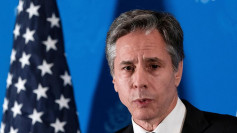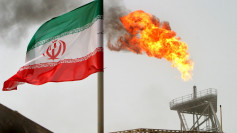The Taliban has said it will ban music in public in Afghanistan because it is forbidden in Islam, despite the assurances given by the insurgent group that it will be more tolerant than it was two decades ago.
The restriction on public playing of music acts as a return to one of the harshest policies of the Taliban in the 1990s.
The previous emirate only allowed religious chants, with nearly all other forms of music forbidden because it was viewed as a distraction that could encourage evil thoughts.
In an interview with The New York Times, Taliban spokesman Zabihullah Mujahid laid out the group's plans to rule Afghanistan. From 1996 to 2001, music in public in the country was taboo, while the Taliban ruled the country.
"Music is forbidden in Islam...the only exception to the ban during the Taliban's original governance in Afghanistan was for some vocal religious pieces with no musical accompaniment," Mujahid said in quotes by the Times.
The Taliban have long considered music a dangerous and deceitful influence. And with the insurgents in control of Afghanistan again, musicians are in hiding, afraid the Taliban will hunt them down.
"But we're just promoting arts and music and freedom of expression and we're not trying to harm anyone's culture," a local musician said.
In reaction to reports the Islamic militants are already extracting vengeance against those who resisted them, Mujahid said the group wants to "build the future and forget what happened in the past."
The prohibition on music, despite the insurgent group representative's claims that people won't be "pressured" to abide by the rule, has left Afghans wondering what other laws from the Taliban's 1990 emirate will be enforced.
"It is a totally uneducated and almost illiterate people who are misinterpreting Islamic ideology," Dr. Ahmad Sarmast, the Afghani-Australian founder and director of the Afghanistan National Institute of Music, said in quotes by Digital Music News.
"There is nothing explicitly written against music in the Holy Quran," Sarmast said, pointing out that the Taliban's interpretation is based on a controversial "hadith," a report on the sayings of the Prophet Muhammad.
In 2014, a suicide bomber attacked a French cultural center in Kabul during an orchestral performance. One died and scores were seriously hurt. Sarmast was the target of the attack.
The Taliban claimed responsibility for the attack. The group said it hated that Sarmast was bringing music to the country's youth.






